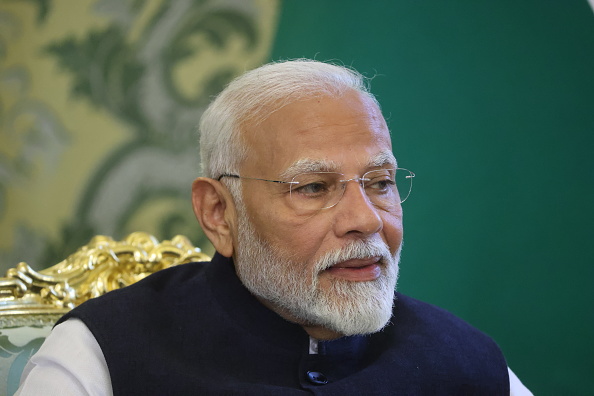It has been over 300 days since the Israel-Hamas conflict began and nearly 900 days since the Ukraine-Russia conflict erupted. While Ukraine and Russia remain deadlocked with no direct negotiations, Israel and Hamas have engaged in multiple rounds of talks mediated by the U.S., Egypt, and Qatar. The recent assassination of Hamas leader Ismail Haniyeh in Iran has further destabilized West Asia, jeopardizing the regional balance among Israel, the Palestinians, and other key players.
The future of the ceasefire talks between Israel and Hamas remains uncertain, raising concerns about potential escalation in the Middle East and the risk of a broader regional conflict. With the Global South already strained by the West/NATO versus Russia conflict, further instability could be disastrous. Given these circumstances, India’s potential role as a mediator in both the Ukraine-Russia and Israel-Hamas conflicts is worth considering.
India’s diplomatic efforts were notably demonstrated in March 2018 when Air India’s flight from New Delhi to Tel Aviv marked the end of a 70-year-old ban on Saudi airspace use for flights to Israel. This breakthrough resulted from behind-the-scenes negotiations involving Israel, Saudi Arabia, and India. Israel’s then Tourism Minister, Yariv Levin, recognized India’s role as a crucial bridge in regional diplomacy.
Under Prime Minister Narendra Modi, India has shifted from maintaining distance to fostering closer international relationships. Modi has expressed India’s willingness to support peace efforts in both conflicts, emphasizing a proactive approach in diplomacy. He has also made efforts to influence the situation, including sending a special envoy to request a halt to Israeli bombings in Gaza during Ramadan.
Modi’s extensive engagement with both Ukrainian President Volodymyr Zelenskyy and Russian President Vladimir Putin highlights India’s unique position in global diplomacy. His recent honors, including Russia’s highest civilian award, underscore his growing influence. Modi’s approach reflects India’s ambition to strengthen global ties and play a significant role in resolving international conflicts.
Since taking office in 2014, Prime Minister Narendra Modi has received numerous prestigious awards, including Saudi Arabia’s King Abdulaziz Sash (April 2016), Palestine’s Grand Collar (February 2018), and the Maldives’ Rule of Nishan Izzuddin (June 2019). He has also been honored with the UAE’s Order of Zayed (August 2019), Bahrain’s King Hamad Order of the Renaissance (August 2019), and the U.S.’s Legion of Merit (December 2020).
More recently, Modi was awarded Fiji’s Companion of the Order (May 2023), Papua New Guinea’s Grand Companion of the Order of Logohu (May 2023), Egypt’s Order of the Nile (June 2023), France’s Grand Cross of the Legion of Honour (July 2023), Greece’s Grand Cross of the Order of Honour (August 2023), and Bhutan’s Order of the Druk Gyalpo (March 2024).
Ajay Bisaria, a former Indian High Commissioner to Canada and Pakistan, wrote in The Times of India that few global statesmen, other than Modi, possess the heft and credibility to engage with leaders from Israel, Palestine, Ukraine, and Russia. He emphasized that India must adapt to and mitigate the geopolitical risks posed by global contests to achieve its vision of a developed economy by 2047.
Ruchira Kamboj, a former Indian ambassador to the United Nations, highlighted that India’s ancient philosophy of Vasudhaiva Kutumbakam (the world is one family) uniquely positions it as a mediator and conciliator in world affairs. She noted, “India has shown that it is possible to maintain friendly relations with countries having differing ideologies and governance models. This ability to navigate complex diplomatic waters showcases India as a potential mediator in international conflicts.”
Chietigj Bajpaee of Chatham House wrote in Nikkei Asia that India’s non-Western yet cooperative worldview positions it well as a bridge between the West and the Global South.
India has a history of playing a crucial role in conflict resolution. For instance, India organized the Asian Relations Conference in 1947 to promote cultural, intellectual, and social exchange among Asian countries. India also led the United Nations Temporary Commission on Korea in 1948, overseeing peaceful elections that established Korea’s first democratically elected government. Additionally, India led commissions for repatriating prisoners of war after the Korean War.
In Nepal, India supported the peace process, facilitating the 12-point agreement signed in New Delhi in November 2005 between Nepal’s political parties and the Maoists.
India’s unique position as a potential peacemaker is supported by its good relations with all parties to a dispute, its credentials as the world’s largest democracy, and its established track record in peace-building. Furthermore, Prime Minister Narendra Modi’s approval rating of 74 percent, according to a recent Morning Consult survey, highlights his popularity and influence on the global stage.
However, challenges remain. Questions about the acceptance of a mediator, the influence India can exert, potential risks to its friendships, and unresolved disputes with some neighbors may impact India’s peace initiatives.
As Prime Minister Modi asserts, “India is a force of good in the world and indispensable for global unity, cohesion, peace, and prosperity at a time of great turmoil and risks of fragmentation in the world.”
The world can only ignore India at its own peril.
Click below to watch the complete programme:
https://youtu.be/8XSpRQV-FC4
By: Ramesh Ramachandran – DD India














